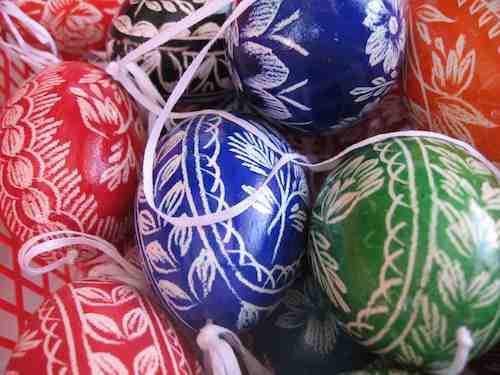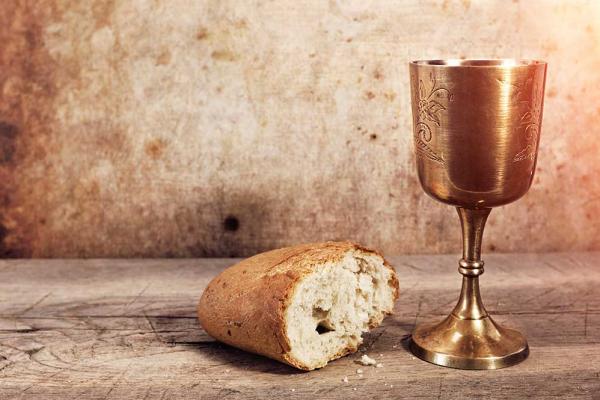Austria, a country where the majority of
the people currently is or identify themselves as Roman Catholics, does have a
majority of the same kinds of holidays that other primarily Christian countries
celebrate. There are very few national holidays, however.
New Years Day. January 1. Also called
Sylvesterabend, after St. Sylvester. Traditionally, many Austrians enjoy a
punch made of cinnamon, sugar, and red wine -- all my favorites! Other people
will burn mortars in order to keep evil spirits away, a tradition you'll find
in many cultures worldwide. Eating a dinner of suckling pig is considered to
bring good luck, as well as green peppermint ice cream in the shape of a
four-leaf clover. People will also sing New Years carols on New Year's morning.
It also marks the beginning of the carnival of Fasching, which goes on until
Lent. That's a lot of partying. Some people will also pour molten lead into a
bucket of water and make predictions based on the shapes. Some people can find
good (or bad) luck anywhere, I suppose.
Epiphany. January 6. Epiphany falls twelve
days after Christmas. It marks when the three wise men visited Jesus, bring
gifts of gold, frankincense, and myrrh.
Easter Sunday. Varies. The night before
Easter, some people light fires and gather around it to sing songs and dance
around it. Easter morning begins with a fabulous Easter brunch to celebrate the
end of fasting. The kids will search for Easter eggs and they also follow the
Easter bunny myth as well. They will make two different kinds of eggs, though.
One kind is decorated but with the intention of being able to eat later. The
other kind is hollowed out and decorated with paints and glitter, using ferns
and flowers as stencils and is attached to ferns as decorations.
Easter Monday. Varies. This is mostly for
a day of rest and to spend with family. I’m sure many people will take the
opportunity to spend it outside, weather permitting of course. Not all
countries have Easter Monday off, but Austria is one that does.
Labor Day/May Day. May 1. Labor Day is celebrated
in similar fashions to other countries, with parades sponsored by various
political and labor groups and organizations. It’s also the same day as May
Day, the traditional first day of spring and is related to Walpurgis Night.
Whit Sunday. Varies. It’s a day regarding
the decent of the Holy Ghost to the disciples of Jesus, according to Christian
traditions. It’s also to mark the beginning of the Pentecostal season in the
church. Many people will spend the day with family doing something together,
such as picnicking or doing something outside.
Corpus Christ. Varies (60 days after
Easter). A holiday to celebrate the Holy Eucharist, or communion. Many
Christians attend special services in order to be served communion, which is
the belief by taking wine and bread, they are receiving the body and blood of
Jesus Christ.
Assumption of Mary. August 15. It’s the
festival in honor of Mary’s ascent into heaven following her death.
Spectacularly decorated festivals and parades followed by fireworks will take
place on this day, and vary from country to country.
Austrian National Day (day of neutrality).
October 26. Their holiday is a little different than other national holidays,
where many would celebrate independence from another country or the signing of
a constitution. This one is celebrating the fact that Austria has declared
themselves neutral from all international conflict: a feat that I highly
commend. Sometimes I wish we were neutral. Many people will hang flags and
attend parades.
All Saints Day. November 1. It’s a
celebration of all the saints, especially those who have no other holidays,
sort of a catch-all holidays for saints. Many people will visit the gravesites
of loved ones and light candles in their memory.
Feast of Immaculate Conception. December
8. It celebrates the immaculate conception of the Virgin Mary. Traditionally,
it’s celebrated on December 8, nine months before Mary’s birthday on September
8. I don’t see how nine months before Mary’s birthday should mark the
immaculate conception, but ok. (Shouldn’t it be nine months before Jesus’
birthday?) This also marks the first day shops can begin the Christmas shopping
season. That wouldn’t go over well in the US, where I’ve seen Christmas stuff
out at Halloween. (cough, cough, corporate greed, cough, cough)
Christmas Day. December 25. People wait to
decorate for Christmas on Christmas Eve by putting up their tree then. None of
this putting it up weeks in advance. Caroling is popular and you can hear
caroling groups all over during this time. Kids open presents left by Santa
Claus. The traditional Christmas meal is carp or sausages. Just invite me to
dinner, please. I’ll even forego the gifts, the food is enough.
St. Stephen's Day. December 26. It’s a day
to commemorate St. Stephen, the first martyr according to Christians. It’s also
related to Boxing Day, which is celebrated in many countries.
Resources:
Wikipedia: "Public holidays in
Austria" “Feast of Immaculate Conception” “St. Stephens Day”
New
Epiphany: http://www.timeanddate.com/holidays/common/epiphany
Easter Monday: http://www.timeanddate.com/holidays/common/easter-monday
Ascension Day: http://www.timeanddate.com/holidays/common/ascension-day
Corpus Christi: http://www.timeanddate.com/holidays/common/corpus-christi
Assumption of Mary:
http://www.timeanddate.com/holidays/common/assumption
Day: http://www.123newyear.com/newyear-traditions/austria.html





Just to clear up your confusion over the Feast of the Immaculate Conception: this holiday refers to the conception of Mary, not Jesus. According to Catholic belief, Mary's mother, St. Anne, conceived Mary through an immaculate conception as well. That is what this holiday celebrates, which explains why it is nine months before Mary's birthday in September.
ReplyDeleteCuriously, there is a holiday on March 25th, nine months before Christmas, that celebrates the conception of Jesus. It is known as the Annunciation.
Hope this helps! Love your blog!
Thank you so much, Ally! As a non-Catholic, it's sometimes a little confusing (if not daunting at times) all of the holidays and feast days and such. So, thanks for clearing that up for me.
ReplyDelete